

All beekeepers are encouraged to make a bee-line for their hives and participate in the Bee Pest Blitz campaign. Read more

Honey bees play a vital role in Australia’s melon industry, with cross pollination a valuable contributor to crop produce. Read more

Alcohol washing can remove over 90% of mites with multiple washes. Read more

In 2023 the NBPSP performed more than 4,080 surveillance activities at 22 locations throughout Australia. Read more

Rod Bourke, NSW Bee Biosecurity Officer, discusses the importance of mite surveillance. Read more
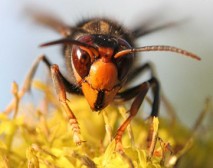
As the Bee Biosecurity Officer for Queensland, I keep my eyes peeled for bee pests and diseases when I am undertaking demonstrations or hive checks. More importantly though, I educate beekeepers throughout Queensland on the pests and diseases that they should be looking for in their own hives and how to identify them. Asian hornets […] Read more
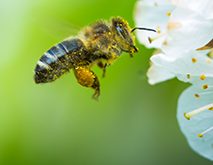
The Honey Bee Health Survey 2019 was designed to provide a snapshot of bee health in the Australian honey bee industry, focusing on issues such as pests and diseases and pollination. Following on from the 2018 Honey Bee Health Survey, the survey examined the level of biosecurity awareness amongst Australian beekeepers, including knowledge of pest […] Read more
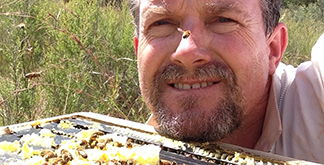
In this update, NSW Bee Biosecurity Officer (BBO) Rod Bourke provides an overview of his main activities since March 2020. It’s fair to say that I have found the last seven months to be about the weirdest time in my life, and there has been a lot of uncertainty that has made it tough for […] Read more
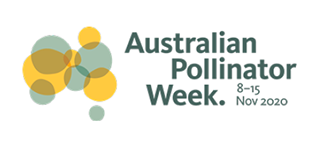
It’s a serious question raised in a slightly naughty way in ‘Pollination Week’, the Australian Pollinator Week theme song released today. “I couldn’t help smiling as I began to contemplate it” said Fiona Chambers, CEO of the Wheen Bee Foundation, “and that’s what makes this theme song so great; it does make you think about […] Read more
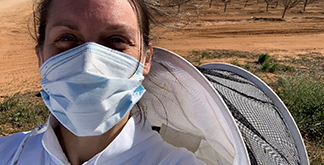
This update provides an overview Victorian BBO Ally Driessen’s main activities since mid-2020 Read more
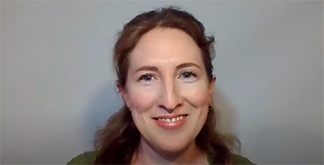
Earlier this year, Queensland Bee Biosecurity Officer Rebecca Laws presented a series of webinars covering a wide range of bee biosecurity topics like how to check your hive for pests and diseases. The webinars were recorded and are now available to watch on the Biosecurity Queensland YouTube channel and below. Ants, waxmoth and hive beetle This […] Read more

This update from the Tasmanian Bee Biosecurity Officer (BBO) Karla Williams gives an overview of her main activities from November 2019 to September 2020. In November 2019, Karla attended the field days of the North-West and Southern branches of the Tasmanian Beekeepers Association (TBA). These were key events for providing biosecurity messages and demonstrating varroa […] Read more
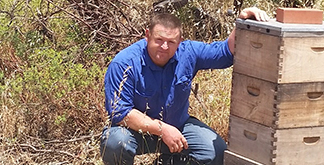
This update from the WA Bee Biosecurity Officer James Sheehan gives an overview of his main activities from August 2019 to June 2020. National Bee Biosecurity Program In WA, like in many other states, the Bee Biosecurity Officer (BBO) role is split between multiple programs. Half my time is focused on delivering the National […] Read more
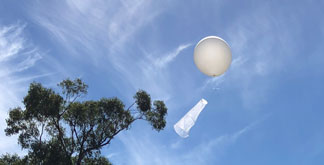
Researchers at the University of Sydney have refined a technique for rapidly assessing the number of honey bee colonies in an area. “Due to the current COVID-19 pandemic we have never been more aware of how diseases move through a population,” said Michael Holmes, one of the project’s researchers. “We have seen that outbreaks are […] Read more
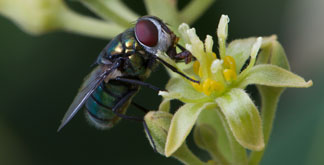
The latest guidelines in a series on how to improve pollination are now available for lychees and papayas, joining the earlier brochures for macadamias, avocados, blueberries and melons. Brian Cutting, Research Associate at Plant & Food Research Australia, said that pollination is a critical step to maximise the yield of many crops, but it sometimes […] Read more
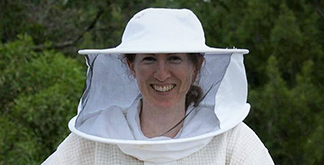
This update from the Queensland Bee Biosecurity Officer Rebecca Laws gives an overview of her main activities since early 2020. Bee Biosecurity Roadshow During February, I took to the road to deliver the Bee Biosecurity Roadshow to spread bee biosecurity messages throughout Queensland. Travelling up the coast from Brisbane to north Queensland, I visited […] Read more
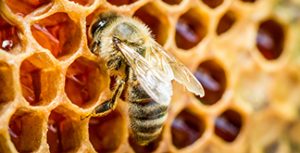
The Biosecurity for Beekeepers online course is now free for all Australian beekeepers, increasing the accessibility of training which will help protect the honey bee industry from pests and diseases. Trevor Weatherhead, Chair of the Australian Honey Bee Industry Council (AHBIC), said the course was previously only free for commercial beekeepers who had 50 or […] Read more
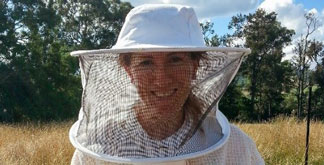
Queensland’s Bee Biosecurity Officer Rebecca Laws has taken her bee biosecurity workshops online. From 26 May to 21 July 2020, Rebecca will present a talk every second Tuesday at 7 pm AEST. She will cover a range of bee biosecurity topics including how to check your hive for pests and diseases and hot topics such […] Read more
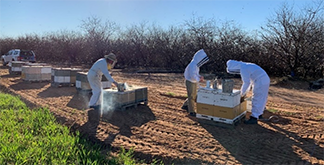
The 2020 almond pollination season is not far away. The Agriculture Victoria apiary team reminds beekeepers planning to provide pollination services that it is vital to adequately prepare hives so that they are healthy and strong to work in the orchards. Australian Honey Bee Industry Biosecurity Code of Practice (‘the Code’) Almond pollination season provides […] Read more
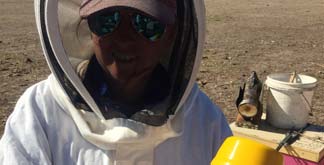
This update from South Australia’s Bee Biosecurity Officer Teagan Alexander gives an overview of her main activities since late 2019. Compliance issues Across South Australia various compliance issues have cropped up including holes in boxes, unregistered hives, exposed materials and unmanaged hives. The number of weak or dead hives on lucerne showed the stresses of […] Read more